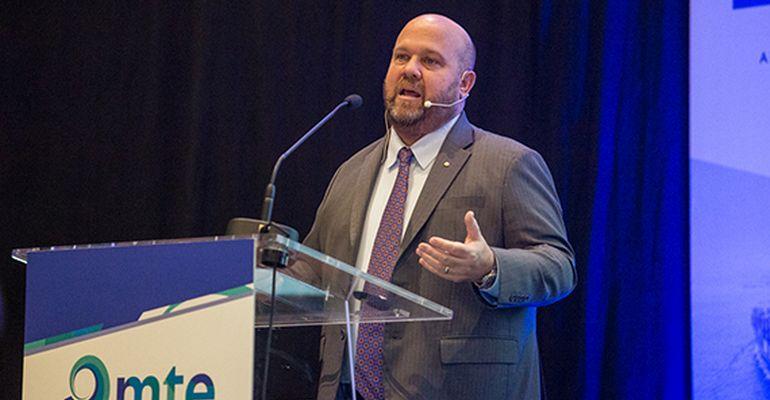“There’s no one single solution to decarbonise shipping; we need a range of alternative fuels at scale and we need them urgently,” said Bud Darr, executive vice president, maritime policy & government affairs at MSC. Darr was speaking at the Maritime Transport Efficiency Conference in Geneva, Switzerland on Monday.
“The future of shipping and decarbonisation will rely on strong partnerships from both the perspective of technology collaboration and procurement,” he said.
MSC is pioneering the large-scale usage of biofuel blends for containerships and bunkering responsibly sourced, up to 30% biofuel blends on a routine basis in Rotterdam. The large 23,756-teu MSC Gulsun was fitted at delivery in 2019-20 with the option to convert to LNG as a potential bridging fuel as part of the industry’s transition towards a zero-carbon future.
Fossil-sourced LNG remains a transitional option, while carbon capture and storage, if perfected for marine use, could be useful, Darr told the conference.
MSC noted that industry partnerships could help accelerate the development of clean hydrogen. Despite some significant challenges to overcome mainly related to density, volume and safe handling, MSC is in favour of further R&D efforts to produce it in a greenhouse gas (GHG) neutral way and to develop it at scale, along with other fuels that may derive from it.
MSC said it is contributing to the work of industry groups and associations and supports their proposal to the IMO to create a new R&D fund to support GHG reduction in the maritime sector.
The container carrier added that there must be a massive injection of energy and capital into R&D efforts to bring alternative fuels and alternative propulsion technologies for deployment in the marketplace and decarbonise in the longer term.
MSC is therefore engaging with potential vendors to investigate new solutions that would help to minimise and to eventually eradicate carbon dioxide (CO2) and other GHG emissions from shipping fleets.
Copyright © 2024. All rights reserved. Seatrade, a trading name of Informa Markets (UK) Limited.
Add Seatrade Maritime News to your Google News feed.  |

